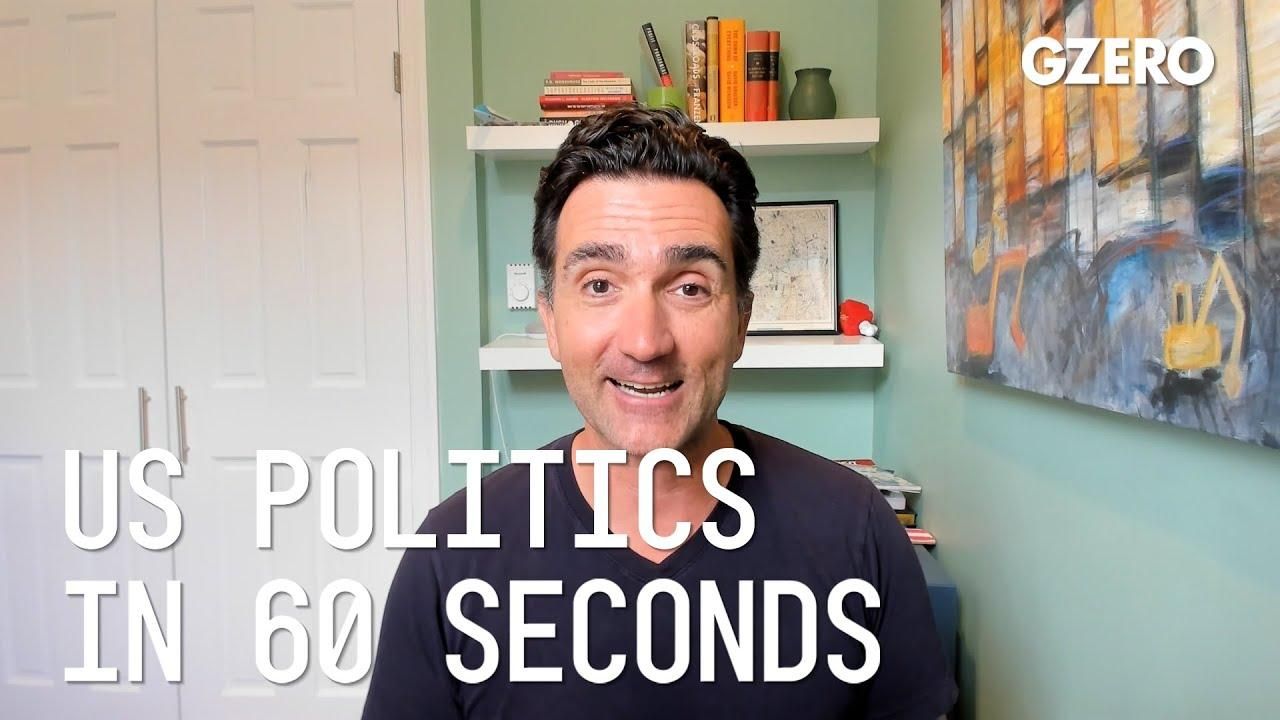US Politics In 60 Seconds
Trump Mar-a-Lago affidavit: who accessed top secret documents?

Trump Mar-a-Lago Affidavit: Who Accessed Top Secret Documents? | US Politics In :60 | GZERO Media

Jon Lieber, head of Eurasia Group's coverage of political and policy developments in Washington, DC, shares his analysis on US politics.
What does the redacted affidavit from the Trump raid tell us?
Not much. The government today released a redacted version of the affidavit that provided the basis for the sensational raid of the compound of former President Donald Trump, two weeks ago, that resulted in the removal of multiple boxes of what are alleged to be classified materials that were being improperly stored. The documents were heavily redacted, reportedly to protect sources. And the parts of the affidavit that are available do not tell us much beyond what was already revealed. As a result, we haven't learned much about the contents of these boxes since the raid, except that they may have contained government secrets that carry the highest levels of classification. And if you believe the leaks to the media, potentially information about the US nuclear program. Still, all of this is speculation.
President Trump maintains he did nothing wrong, that as president, he can verbally declassify anything he wants, and as the push to get back what he thinks of as "his documents". If the allegations in the affidavit and the search warrant are true, President Trump almost certainly broke the law by removing classified documents and storing them in places that were far from secure, including in places where foreign nationals or other guests at Mar a Lago could have potentially gained access to them. Politically, it is this question of access that is most interesting.
Republicans have largely rallied around the former president after the initial allegations that he was improperly handling classified documents. But if it turns out that government secrets are being shared at Mar a Lago, it will become much more difficult to defend him. There's no evidence of this to date however, The New York Times did report that the FBI is looking at surveillance video at the site, possibly to determine if there was a breach. Again, this is all anonymously sourced.
In the meantime, President Trump's popularity in the Republican Party is soaring as he continues to use what he calls his prosecution by the so-called deep state to further the politics of grievance by the political elites that took him from a reality TV star to the president of the United States in just five years.
In this Quick Take, Ian Bremmer addresses the killing of Alex Pretti at a protest in Minneapolis, calling it “a tipping point” in America’s increasingly volatile politics.
Who decides the boundaries for artificial intelligence, and how do governments ensure public trust? Speaking at the 2026 World Economic Forum in Davos, Arancha González Laya, Dean of the Paris School of International Affairs and former Foreign Minister of Spain, emphasized the importance of clear regulations to maintain trust in technology.
Will AI change the balance of power in the world? At the 2026 World Economic Forum in Davos, Ian Bremmer addresses how artificial intelligence could redefine global politics, human behavior, and societal stability.
Ian Bremmer sits down with Finland’s President Alexander Stubb and the IMF’s Kristalina Georgieva on the sidelines of the World Economic Forum to discuss President Trump’s Greenland threats, the state of the global economy, and the future of the transatlantic relationship.